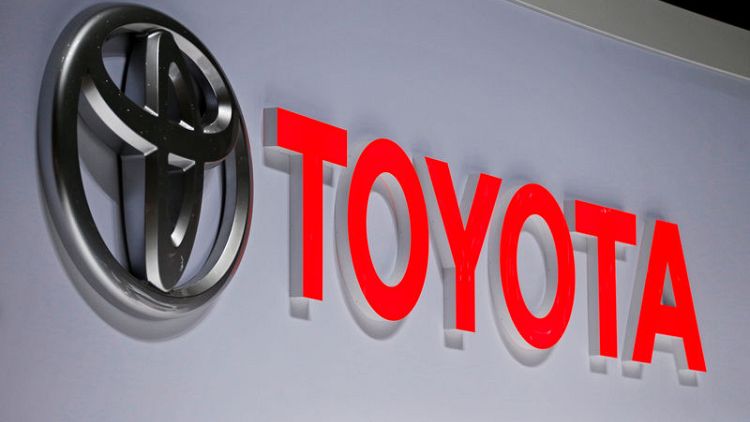By Maki Shiraki and Naomi Tajitsu
TOKYO (Reuters) - Toyota Motor Corp <7203.T> will raise its stake in Subaru Corp <7270.T> to 20% from around 17%, the two Japanese automakers said on Friday, as they leverage their scale to better compete in developing new vehicle technologies.
The investment comes a month after Toyota and another smaller Japanese automaker, Suzuki Motor Corp <7269.T>, said they would take small equity stakes in each other.
Such tie-ups highlight how automakers are scrambling to chase scale, manage costs and boost development required to develop self-driving cars, electric vehicles and new mobility services which are upending the global auto industry.
"In this once-in-a-century period of profound transformation, by strengthening their bonds and aligning their capabilities, Toyota and Subaru aim ... to make ever-better cars," Toyota said in a statement.
Traditional car makers, especially smaller ones such as Subaru and Suzuki, are struggling to meet the fast pace of change in an industry which is shifting to a business model of providing transportation services from simply selling cars to drivers.
In a statement, Toyota, whose annual global vehicle sales are 10 times that of Subaru, said its investment would amount to up to 80 billion yen (£602.5 million) based on Subaru's stock market value. The smaller automaker will reciprocate by buying a stake in Toyota of equal value.
"The plan appears to be to ultimately make Subaru a fully owned subsidiary, to help create a 'mega Toyota'. This is the first step towards that," said Takeshi Miyao, managing director of consultancy Carnorama. "It's all about building scale."
JOINING FORCES
Car makers around the world are joining forces to slash development and manufacturing costs of new technology. Ford Motor Co <F.N> and Volkswagen <VOWG_p.DE> have said they will spend billions of dollars to jointly develop electric and self-driving vehicles.
Friday's deal cements Subaru's place in Toyota's expanding group of Japanese partners, which include Mazda Motor Corp <7261.T> and Yamaha Motor Co <7272.T>.
Rival Nissan Motor Co <7201.T> has an alliance with France's Renault <RENA.PA>, although that has been shaken following the ouster of former chairman Carlos Ghosn, and with Mitsubishi Motors Corp <7211.T>.
Honda Motor Co <7267.T> has a tie-up with General Motors <GM.N>.
Subaru, which produces the Outback and Forester SUVs, is known for its horizontally placed boxer engines, along with its EyeSight autonomous driver assist and all-wheel-drive technologies.
In recent years it has departed from selling cars as high-performance machines, marketing them instead as lifestyle products using an approach which has been successful in the United States, its biggest market.
The two automakers in June said they planned to jointly develop an electric sport-utility vehicle on a platform produced together, to share costs.
Toyota seems to be keen on investing in smaller, domestic automakers, rather than forging cross-border tie-ups like some of its rivals.
It has been building its holding in Subaru since first acquiring a 9.5% stake in the company, then called Fuji Heavy Industries, in 2005. Its current 17% stake makes Toyota the biggest shareholder.
Toyota shares ended 0.77% lower on Friday and Subaru fell 0.74%.
(GRAPHIC: Toyota's stakeholdings in partner automakers link: https://tmsnrt.rs/2nKhOEZ)
(This story corrects currency conversion, paragraph 6).
(Reporting by Maki Shiraki and Naomi Tajitsu; additional reporting by Chris Gallagher; writing by David Dolan and Naomi Tajitsu; editing by Christopher Cushing and Jason Neely)



